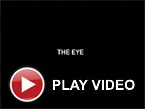Zoviet France, "7.10.12"
 This, Zoviet France's first major release in over a decade, originally surfaced last fall as a characteristically cryptic and incredibly limited box set containing rubbings of neolithic Northumbrian stone and a vial of hawthorn berries.  Unfortunately, it completely sold-out world-wide on the day it was released, so most of us never got to hear it.  Until now, anyway, as alt.vinyl has now issued a second (and more affordable) version.  Hawthorn berry enthusiasts will no doubt be a bit dismayed by the hyper-minimal new format (three black vinyl records in three entirely black sleeves), but it certainly fits the music, as 7.10.12 offers up roughly an hour of minimal/quasi-ambient loopscapes.  While they certainly offer many subtle nods to ZF's weirder, more abrasive past, these records feel more like the beginning of a curious new phase than a triumphant return to form.
This, Zoviet France's first major release in over a decade, originally surfaced last fall as a characteristically cryptic and incredibly limited box set containing rubbings of neolithic Northumbrian stone and a vial of hawthorn berries.  Unfortunately, it completely sold-out world-wide on the day it was released, so most of us never got to hear it.  Until now, anyway, as alt.vinyl has now issued a second (and more affordable) version.  Hawthorn berry enthusiasts will no doubt be a bit dismayed by the hyper-minimal new format (three black vinyl records in three entirely black sleeves), but it certainly fits the music, as 7.10.12 offers up roughly an hour of minimal/quasi-ambient loopscapes.  While they certainly offer many subtle nods to ZF's weirder, more abrasive past, these records feel more like the beginning of a curious new phase than a triumphant return to form.
This is a very difficult album to assess with any semblance of objectivity, as a new Zoviet France release is unavoidably colored by both my own expectations and the band's shadowy, fractured history.  Given the group's original shifting, collective nature, the very idea of a "Zoviet France" in 2013 is a bit blurry and perplexing, as only Ben Ponton remains from the early days and most of the key personnel from ZF's prime splintered off to form the very different Reformed Faction.  Consequently, this duo of Ponton and Mark Warren bears only fleeting resemblance to the group responsible for Shouting at the Ground.  Instead, this is a continuation of the ZF responsible for albums like Digilogue and The Decriminalization of Country Music.  That distinction is an important one: 7.10.12 is not a suite of post-industrial/sci-fi tribal experiments–it is more like a monolith of somewhat austere sound art.  That is not inherently a bad thing, but it is certainly a radical stylistic difference.
In its own way, however, 7.10.12 is still a very bizarre and inscrutable effort.  For one, it has a rather unique format that is thematically intertwined with its title and release date: a 7", a 10", and 12" LP.  Secondly, the music has the feel of an evolving narrative or soundtrack, but no clues are given as to what it might mean nor how it might relate to the prehistoric relics/symbols included in the original box.  The song titles, while sometimes evocative, offer little insight at all (and actually are not even provided on the physical release).  Finally, all of these 18 pieces feel like discrete fragments intertwined with one or two simple recurring motifs.  There are many very promising ideas scattered across the three records, but none of them ever seem to evolve into anything more.  Perhaps that is by design, but it is certainly a puzzling structure: intriguing loops constantly appear only to be eventually subsumed by subtle variations of the eternally repeating central drone/ambient motif.  On one hand, that ebb and flow provides an illusion (or reality) of cohesion or larger purpose, but I cannot help but wish that either the primary theme(s) were stronger or that the lesser themes were allowed to grow into something more.
Still, some of the loops show flashes of inspiration, which is both promising and frustrating.  For example, the B-side of the 7" ("The Leaves of the Birch") sounds like a blurred and queasily dissonant music box adrift in a sea of tape hiss, which could have been the foundation for something wonderful.  Instead, however, it just fades in and then gradually fades away after 3 minutes or so.  The other two records are even more riddled with seeming missed opportunities and/or teasing snatches of greatness: imaginary field recordings from hallucinatory forests, warped tribal woodwinds, woozily dreamlike/annoying locked grooves ("Freezeling"), roiling feedback ("Stimatze"), creepily backwards and damaged-sounding swells, and ominous atmospheres abound.  Time and time again, however, Ben and Mark just allow their best ideas to appear and disappear without any apparent evolution.  Again, that may be by design (a series of strange, dreamlike loops taking shape, then dissipating), but it still drives me a little crazy.
Despite my best efforts to unravel the mystery of 7.10.12' or find something profound or fully realized to grasp onto, I cannot help but feel somewhat disappointed by this effort.  I would probably be a lot more charitable if this were not a Zoviet France album, but I love Zoviet France–if that name is going to be resurrected, I want it to be attached to something unambiguously wonderful and distinctive.  Ponton and Warren certainly had many fine ideas, but their impact is is dissipated by a seeming lack (or misuse) of compositional ambition coupled with way too much conceptual ambition.  In a very broad sense, there is a definite logic and cohesion to these three records, as each functions as a self-contained whole while maintaining a strong link to the others.  However, it did not offer much reward for me in an immediate, song-by-song sense: 7.10.12 is essentially a single decent ambient piece chopped up and stretched across three records, interspersed with sketch-like, fleeting glimpses of something a bit more strange and compelling.
I guess I do not fully understand what Warren and Ponton were hoping to accomplish with this effort, nor do I know whether or not they succeeded.  The structure and presentation just seem less-than-ideal for the material, particularly in the 7" format, as having to flip a record after just over 3 minutes makes sustaining an immersive reverie impossible. Still, it is very easy to imagine many of these pieces working beautifully as part of an installation or a soundtrack, even if they a bit too static and fragmented to make any kind of strong statement on their own.  Which, of course, is an unfortunate irony, given that the lack of any kind of text or visual accompaniment basically implies that the records themselves are the entirety of the statement.  Ultimately, 7.10.12 is a bit of an ambitious, promising misfire: I am happy that Zoviet France are back and that they still have something to say, but they have not quite worked out the best way to say it.
Samples:
 



